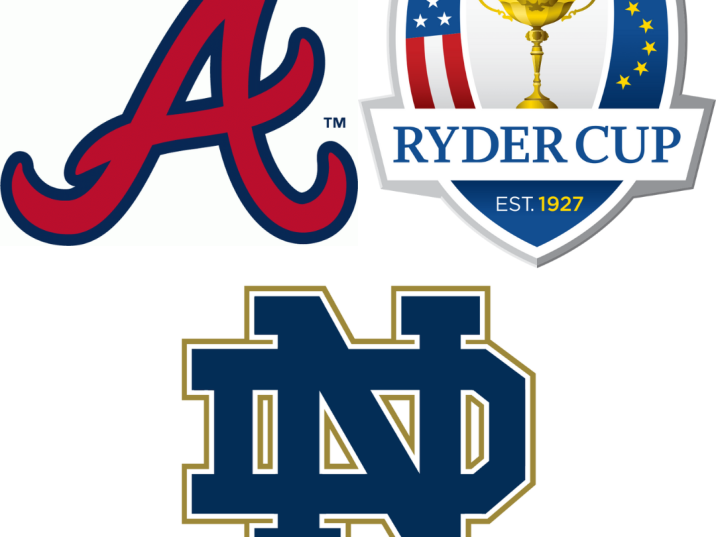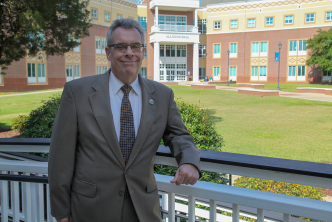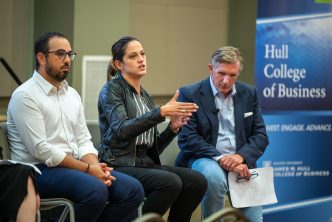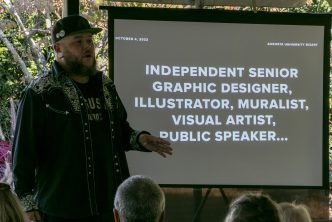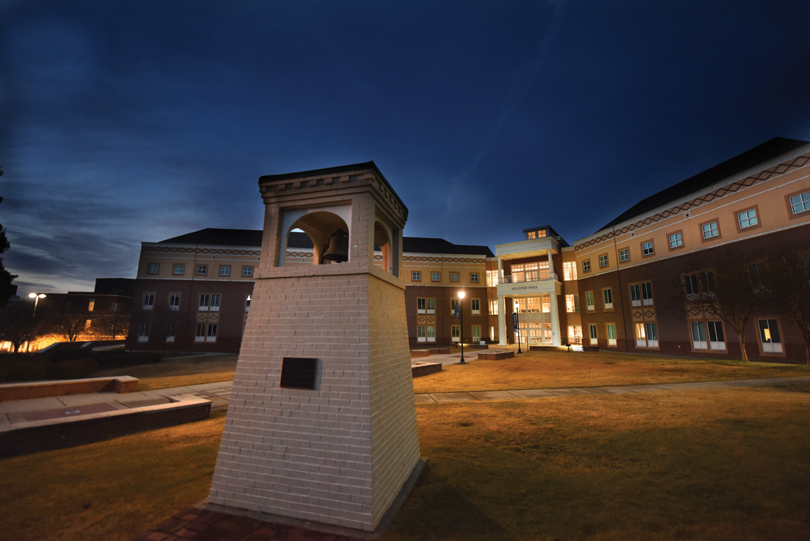Dean Richard Franza’s column appeared in the Sunday, Oct. 10, edition of the Augusta Chronicle. The post can be viewed here.
Late September and early October is always one of my favorite times of the year, particularly when it comes to sports. Major League Baseball pennant races are reaching their exciting conclusions and college football is ramping up with some great early season matchups. Every other year, such as this one, golf’s Ryder Cup also adds a cherry on top of the proverbial sports sundae of early fall.
Regular readers of this column know that I love watching sports, but that I also do my best to find business and organizational lessons from the world of sports. This year, the last weekend of September gave me three outstanding lessons while I was entertained by my favorite sports.
Lesson 1: Show faith in the workforce by investing in your team
During the last weekend of September, the Atlanta Braves were in San Diego for a three-game series with the Padres. As the Braves entered that series, they were in a tight race for the National League East championship, holding a small lead over the Philadelphia Phillies. (Note: The Braves clinched the division championship a few days later.)
However, it was amazing that the Braves were in such a position at that point in the season. Their record did not go over .500 until their 111th game on Aug. 6, and the team was besieged by injuries all season. They lost one of their best pitchers, Mike Soroka, for the entire season; one of baseball’s best players, Ronald Acuna Jr., for the second half of the season; and their 2020 Silver Slugger catcher, Travis d’Arnaud, for more than three months. Additionally, they lost 2020 star outfielder Marcel Ozuna for most of the season with an injury and a domestic violence suspension.
You might not have blamed the Braves management and players for giving up on the season given the circumstances and their lack of success through the first two-thirds of the season. However, neither did. The undermanned team gave their best to remain close in the standings to the New York Mets and Philadelphia Phillies, who were ahead of them most of the season.
Despite rather steep odds against them, management made a number of deals at the trade deadline, totally remaking their outfield and adding a solid relief pitcher. They made a healthy financial investment in a team that was barely holding on, and this not only added to the team, but also rewarded the existing team members for their grit and determination. This led to an even greater performance of the team, resulting in a championship.
So, what we can learn from this as leaders of businesses and organizations? We see that, like the Braves, if we reward the efforts of our current workers by improving and investing in our business, they will likely reward us back with even better performance. We can show our employees we value them by continuing to improve their place of work and its competitiveness in the marketplace. The Braves did that by investing in some new players, but in addition to hiring new employees to improve our organizations, we should also recognize and reward those we already have in place.
Lesson 2: Collegiality and friendship in the workplace boosts performance
While the Braves were playing in San Diego, the U.S. Ryder Cup golf team was tangling with its European rivals in Wisconsin. Before these most recent matches, the European side had dominated the Cup, winning seven of the nine matches since the start of the 21st century.
However, in these most recent matches, the American team won 19-9, its largest margin of victory since 1975. The American performance was attributed primarily to its large talent advantage, with 10 members of their 12-man team ranked among the top 13 players in the world. However, American teams have had similar talent advantages in the recent past, but have been beaten soundly. What was different this year?
I believe some of the difference has to be that this Ryder Cup team got along with each other better than any U.S. team in recent memory. Significant research over the years has shown that employees who feel they have great co-workers and/or have at least one co-worker they consider a close friend tend to work harder and perform better.
This seems to have held true for this U.S. Ryder Cup team who really seemed to like one another. Although much was made of the Brooks Koepka-Bryson DeChambeau feud prior to the Ryder Cup, team captain Steve Stricker masterfully chose Ryder Cup rookies Daniel Berger and Scottie Scheffler for the team to play matches with Koepka and DeChambeau, respectively. Berger and Koepka both played their college golf at Florida State University, and Scheffler and DeChambeau knew each other from the Dallas area, giving each a “close friend” on the team.
Therefore, as businesses and organizations, we should look toward creating collegial environments made up of people who get along with one another and consider hiring friends to work together.
Lesson 3: You’re never too old to change
As a graduate of the University of Notre Dame, I have been a fan of Notre Dame football for most of my life. I was fortunate enough to experience a football national championship there during my freshman year. During the last week of September, the Fighting Irish beat Wisconsin 41-13 to remain ranked in the top 10 of both major polls. (Note: Notre Dame lost to Cincinnati in a battle of top-10 teams.)
Notre Dame has not won a national championship since 1988, with Lou Holtz as its coach, and none of the three coaches who followed Holtz had any significant success. In 2010, the Irish hired Brian Kelly as its head football coach.
From 2010 to 2016, Kelly had mixed results, with records running from a horrible 4-8 in 2016 to a high-water mark of 12-1 with a loss in the national championship in 2012, but most years the team’s record was around 8-5. However, following the 2016 season, it seems like Coach Kelly has gone through a metamorphosis. He stopped screaming at his players and staff; became more accountable for his own mistakes and failures; and embraced the culture of his institution more so than ever before.
The results of this radical change have been striking. Since the start of the 2017 season, Notre Dame is 47-9 and has advanced to the College Football Playoff two of the past four seasons. What is most amazing about Coach Kelly’s change is that he was 55 years old when he made that change. Most of us are too set in our ways by that age to make a substantial change in how we do things, particularly how we lead and manage.
As I have observed Coach Kelly these past four years, I have tried to emulate his ability to change, hopefully taking feedback I have received to be a better leader, manager and person. As business leaders, we can learn from Coach Kelly that we are never too old to reflect on how we are doing things and to change our ways to improve.
The last weekend of September was a winning one for all of my teams – the Braves, the U.S. Ryder Cup team and Notre Dame. But I felt I came out a bigger winner by taking lessons from each of their experiences, and I hope you will, too!


